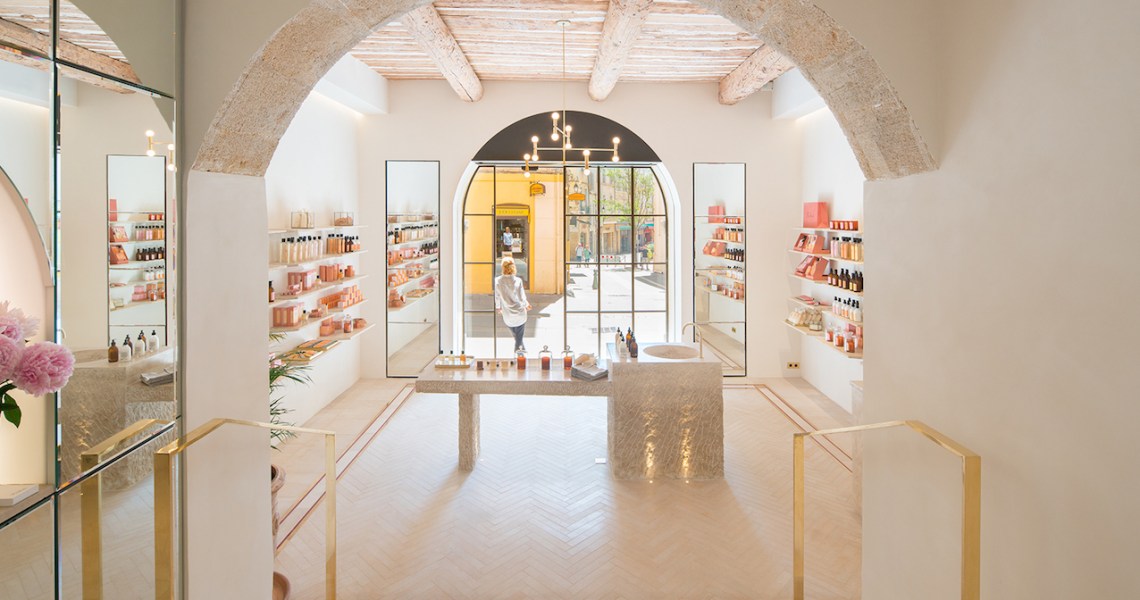Omnichannel retail is undergoing a dramatic revolution.
With stores closed for months on end and brands shifting their focus to e-commerce to stay afloat, there is an opportunity to reimagine the relationship between physical stores and e-commerce. Brands like Urban Decay are bullish on augmented reality for both online and in-store, while Glossier’s experience has affirmed the importance of human connection in-store, even though the company unsure when its stores will reopen. Nearly all beauty brands agree that digital e-commerce needs to offer a richer experience, while brick-and-mortar stores must provide customers a compelling reason to shop in-store.
Ahead, eight brand founders and executives share their thoughts on the future of omnichannel retail. Quotes have been lightly edited and condensed for clarity.
“We’re challenging ourselves to reimagine the offline experience for this moment and beyond, and we’re hard at work finding new ways to inspire joy and bring people together, safely. Since day one, we’ve been a digital-first company, and even in ‘normal’ times, the vast majority of our sales happen online. That doesn’t diminish the role of retail; it elevates it. As shopping for beauty online becomes the norm — and this period is undoubtedly accelerating that trend — retail gets to be about so much more than just procurement. It’s about human connection.” –Emily Weiss, Glossier founder and CEO
“One of the biggest omnichannel evolutions we’ll continue to see is a focus on digitizing the ‘high-touch’ experience typically found in physical retail. Without the physical merchandising and expertise of in-store staff to guide customers, we’ve found it to be increasingly important to bring product education, expert tutorials and community building online. Even as physical stores begin to re-open, with increased safety protocols and updated procedures, I predict that both Skyn Iceland and brands across the beauty industry will prioritize richer digital experiences that go beyond transactions and new product launches.” –Kelley Martin, Skyn Iceland CMO
“This is an opportunity for developers to focus on really nailing some of the virtual try-on capabilities that are currently a novelty. They are fun to play with, but now they need to become two-way interactive tools that take advisory and artistry to the next level. Customers might also be able to get a copy of a recently purchased IRL product for an app that allows them to use the product virtually for their online video-conferencing filters. Retailers might send their customers printed color standards cards so that when customers are online for their appointments, digital tools can read the variance in the standard and then project for skin tone to make online foundation matching more accurate. Virtual try-on in-store could be color tester stations in-store that project selected shades onto the skin to help customers pick the right color, and evaluate coverage and effect on the skin.” –Wende Zomnir, Urban Decay chief creative officer
“The digital channel will cause a reduction in product offerings and the top sellers to win disproportionately. Consumers only see five products on their home screen of a cell phone, so those five take all the sales. Larger stores that strip human connection and touch out of their offerings will falter as consumers realize that it’s not worth the hassle of going shopping if it’s going to be as drab as airport security. But smaller, nimble local stores will win the consumer who is looking for personal physical connection and even touch, causing a resurgence of neighborhoods.” –Aurelian Lis, Dermalogica CEO
Ad position: web_incontent_pos1
“People may choose to physically see certain products in a brick-and-mortar environment and then shop them later online. Retail stores will possibly have to consider being more of a showroom and hold inventory elsewhere, to make shopping more sensible and safe as we adjust to a new way of living.” –Sasha Plavsic, Ilia founder
“Omnichannel will change for the entire beauty industry post-Covid-19. The dot-com business has proven to be key for survival and where I believe a lot of the focus will be on post-Covid-19. Whether it is an efficient, user-friendly page or timely shipping and discounts, this will be essential to compete with the competition. I’m curious to see what the traffic will look like in the coming weeks and months. We will see changes in how products are tested, and how and whether in-store events and demonstrations will continue.” –Lan Belinky, Boscia co-founder
“If a store serves simply as a transactional venue, customers know they can get that online without leaving their house. Retailers will need to provide a superior product education and discovery experience, as well as incentives like in-store exclusive products or early access pre-launches. We plan to enable personalization of our in-store experience with Sephora through fun initiatives like client-specific face charts to help them learn how to use products specifically chosen for them. Increased video content, application tutorials, livestreams and digital product launch campaigns will be critical. I also think an emphasis on collaboration with consumers and a brand’s connection with its audience through social and dotcom will be more important than ever.” –Annie Lawless, Lawless Beauty founder
“The industry will have to evolve to offer a completely integrated and seamless omnichannel experience across all touchpoints. Brands will need to stay very connected to their communities, focus on their unique superpowers and role in their consumers’ lives, streamline their business models, be agile and adapt in real-time.” –Tim Coolican, Milk Makeup CEO




